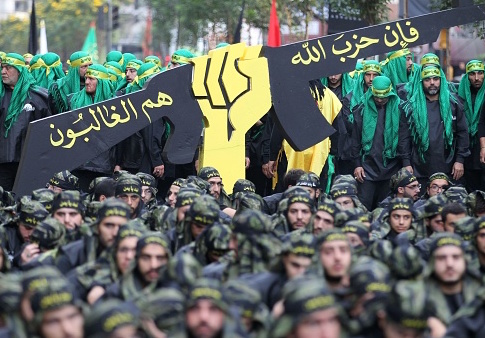The Trump administration needs to significantly rebuild and expand law enforcement agencies' ability to target and take down terrorist financing networks after President Obama systematically disbanded the work in an attempt to ease relations with Iran for the nuclear deal, according to former senior U.S. officials with decades of experience in the field.
There was a mass exodus of top officials who spent years trying to bolster the U.S. government's ability to target these terrorist networks' illicit financing after the Obama administration dismantled their investigative units over the past several years, these experts say.
Trump now has a chance to reconstruct and redouble economic warfare against terrorist entities tied to Iran and others, but both Congress and the White House need to devote the necessary resources to do it.
Hezbollah, an Iranian terrorist organization based in Lebanon, has morphed into a transnational criminal terrorist organization over the last decade, fueled by a large and global illicit financial and business apparatus relying on cocaine and heroin trafficking and partnerships with Latin American drug cartels to fund its activities, the experts told the House Foreign Affairs Committee Thursday.
To weaken and take down Hezbollah and other terrorist groups, the FBI, Immigration and Customs Enforcement (ICE), Customs and Border Protection, and the Secret Service need more resources to tackle the financial backbone of these groups.
"Our Department of Justice must rebuild, properly fund, and expand capabilities and investigations" against Hezbollah, and their friends and partners in leadership of the governments of Venezuela and North Korea, said David Asher, a former adviser to Gen. John Allen at Defense and State Departments who now sits on the board of advisors of the Foundation for Defense of Democracies' Center on Sanctions and Illicit Finance.
If the U.S. can successfully "crush" a criminal organization's financial network, it will significantly increase the chances of disrupting their illicit activities, said Derek Maltz, executive director of government relations at Pen-Link.
Pen-Link is a company that produces data intercept and surveillance equipment. Maltz previously led the Drug Enforcement Administration's Special Operations Division.
Asher also urged U.S. prosecutors to employ racketeering laws used against the mafia and other transnational criminal organizations to indict these terrorist networks from "foot to toe and toe to tooth, aiming to destroy them, and lock up their leaders for life."
He also stressed the importance of integrated intelligence and law enforcement collaboration against Hezbollah through the creation of a Hezbollah task force so that evidence gathered could be shared and used "coherently" by all investigators, including the FBI.
"This task force would support a unified prosecution strategy among all the different U.S. attorneys' offices and the Justice Department writ-large," he said.
Matthew Levitt of the Washington Institute for Near East Policy said the United States has not reined in Hezbollah's financial network since the signing of the nuclear accord between the United States, five other world powers, and Iran, and the network has since expanded.
He outlined several key steps Trump could take, including revisiting the question of designating Hezbollah as a transnational criminal organization, resuming sanctions on Iran for state sponsorship of Hezbollah and other terrorism, and enhancing interagency coordination and cooperation against Iran's extended financial terrorism network.
Maltz urged the new administration to use the DEA's investigation into money laundering at the Lebanese Canadian Bank, or LCB, as a model. Hezbollah, the DEA found, was moving large shipments of drugs from south America to Europe and the Middle East via West Africa and laundering hundreds of millions of dollars to accounts at LCB. The money-laundering network involved consumer goods throughout the world, including used car dealerships in the U.S.
The DEA's Counter-
"New leaders under President Trump must support and advance the multi-agency successful efforts of groups like CNTOC," he said.
He pressed top administration officials to place qualified personnel with law enforcement backgrounds in key leadership positions to "ensure that communication is flowing appropriately in both directions between law enforcement and other pertinent agencies."
